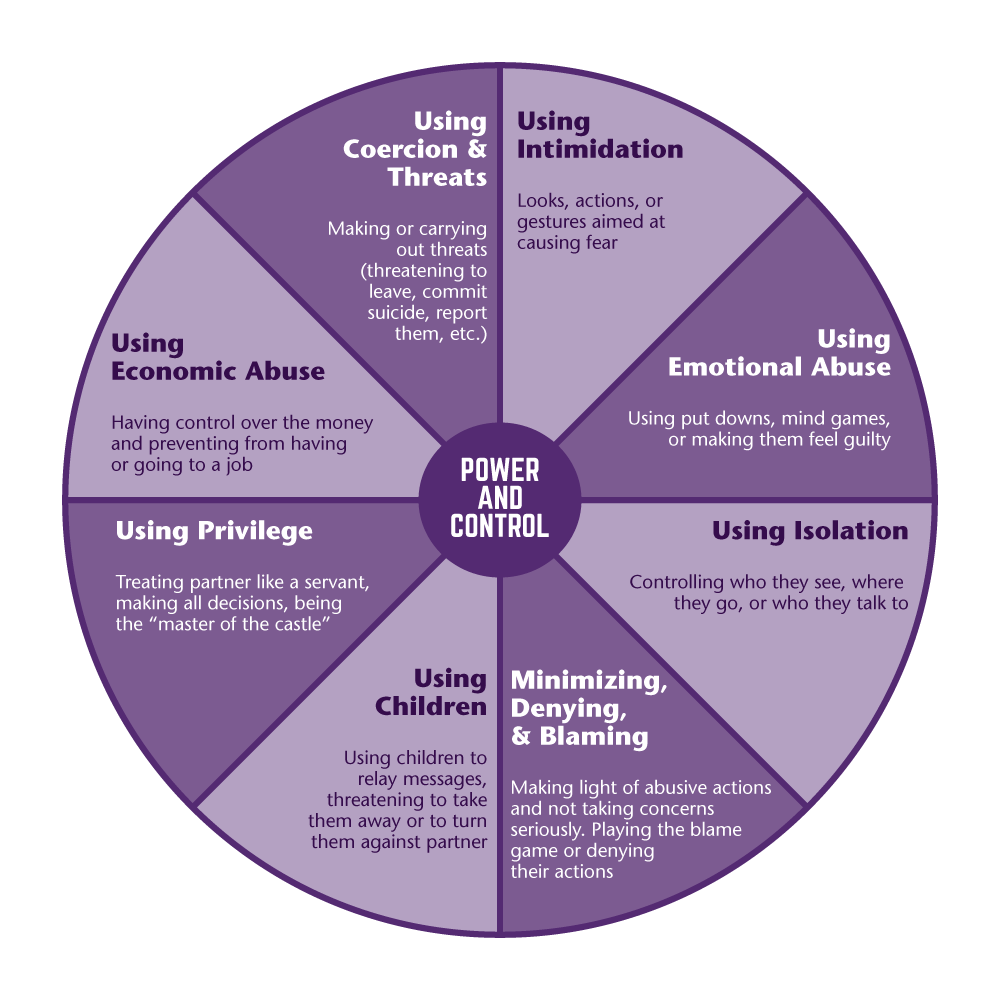Relationship health
Relationship health is the ability to be in an intimate relationship where partners are supported and connected, yet still independent.
Love Shouldn't Hurt
Love is a driving force in our lives, and yet we often don't learn much about how to have healthy relationships and the signs of unhealthy relationships. Our Love Shouldn't Hurt campaign aims to increase knowledge about healthy relationships, signs of abuse, and available resources locally.
Power and control wheel

Using intimidation
Looks, actions, or gestures aimed at causing fear.
Using emotional abuse
Using put downs, mind games, or making them feel guilty.
Using isolation
Controlling who they see, where they go, or who they talk to.
Minimizing, denying and blaming
Making light of abusive actions and not taking concerns seriously. Playing the blame game or denying their actions.
Using children
Using children to relay messages, threatening to take them away or to turn them against partner.
Using privilege
Treating partner like a servant, making all decisions, being the "master of the castle".
Using economic abuse
Having control over the money and preventing from having or going to a job.
Using coercion and threats
Making or carrying out threats (threatening to leave, commit suicide, report them, etc.).
Relationship Health Resources
Domestic Abuse Hotline
1-800-799-SAFE (7233)
Online chat at: thehotline.org
The National Domestic Violence Hotline answers the call to support and shift power back to people affected by relationship abuse. Highly-trained advocates are available 24/7/365 to talk confidentially with anyone who may be experiencing domestic violence, seeking resources or information, or questioning unhealthy aspects of their relationship.
Loveisrespect
1-866-331-9474
Online chat at: loveisrespect.org
Text: loveis to 22522
Highly-trained advocates offer support, information, and advocacy to young people who have questions or concerns about their dating relationships. They also provide information and support to concerned friends and family members, teachers, counselors, service providers, and members of law enforcement. Free and confidential phone, live chat, and texting services are available 24/7/365.
Counseling and Psychological Services (CAPS)
313-577-3398
552 Student Center
CAPS enhances the wellness and success of our diverse student body and the university community by providing tailored, culturally-competent, research-based, ethical, collaborative, and inclusive mental health services, consultation, crisis response, and outreach. We maintain the highest standards of care by continually fostering the professional development of our staff, providing immersive and evidence-based education to our trainees, and making scholarly contributions to our disciplines.
CAPS offers a variety of services to the University Community which include:
- Counseling services to registered Wayne State students
- Therapy groups, support groups, and educational groups
- Outreach services and events
- Workshops/educational activities
- Crisis intervention for students, faculty, and the university community
- Consultation to faculty and the university community
- Consultation to parents of university students